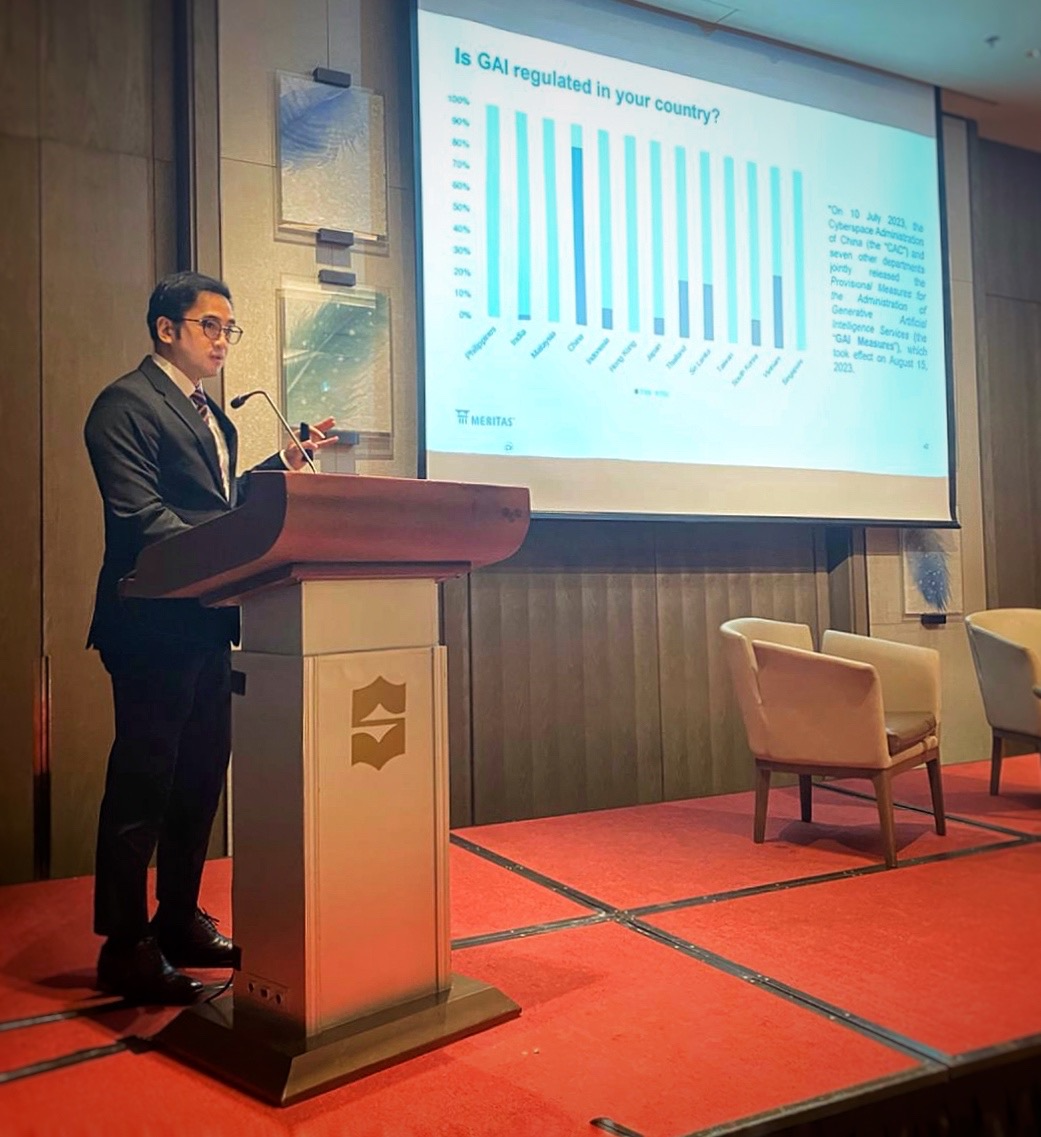ACCRALAW Partner Christopher Louie D. Ocampo co-presented a pioneering study on Generative Artificial Intelligence (“GAI”) usage in the legal profession during the Meritas Asia Regional Meeting in Colombo, Sri Lanka. He collaborated with Ms. Nivedhaa Hariharan from Neelakandan & Neelakandan (Sri Lanka) and Ms. Kulkanya Vorawanichar from LawPlus Ltd. (Thailand). Meritas is a global alliance of 184 top-ranking law firms across 91 countries. ACCRALAW is a Meritas member firm, and Mr. Ocampo is the Co-Chair of the Asia Emerging Leaders of Meritas.
Survey Insights from Across Asia
The study, titled “Survey on Perception of Lawyers in Meritas Member Law Firms in Asia on the Use of Generative AI,” gathered insights from 245 lawyers across 13 jurisdictions in Asia. These jurisdictions included China, Hong Kong, India, Indonesia, Japan, Malaysia, Philippines, Singapore, South Korea, Sri Lanka, Taiwan, Thailand, and Vietnam. The study revealed critical insights into lawyers’ perceptions, concerns, and expectations concerning GAI, offering a glimpse into the future of legal work.
Current Landscape: Mixed Feelings and Concerns

While 60% of respondents had not used GAI yet, a substantial majority (77%) anticipated its future use. Notably, Gen Z lawyers were more open to embracing GAI. Nevertheless, lawyers across generational groups exhibited mixed feelings about GAI, citing ethical, practical, and regulatory concerns.
An overwhelming majority of Meritas lawyers in Asia expressed deep concerns about data privacy, confidentiality, and security when it comes to utilizing GAI in their legal practice. These concerns are not unfounded, given the sensitivity and confidentiality of legal matters. Addressing these issues will be a crucial step in fostering trust and acceptance of GAI in the legal profession.
Impact on Practice Areas
When asked about the potential impact of GAI on the legal profession in the next five years, Meritas lawyers in Asia maintained a cautious “wait-and-see” attitude. This approach reflects their willingness to monitor GAI technology, regulatory developments, and industry best practices.
The survey respondents believe that GAI would particularly affect practice areas dealing with templates, forms, and research. This perception raises questions about how legal professionals can adapt to the changing landscape and leverage GAI to enhance their practice, rather than seeing it as a potential threat.
Notably, 89% of respondents expressed a desire for Meritas firms to provide training on effective GAI usage in legal work. This highlights the recognition of the importance of preparing legal professionals to utilize GAI efficiently.
Conclusion
The study offered a glimpse into the evolving legal landscape and GAI’s significant role. While the potential benefits of GAI are recognized, addressing data privacy, security, and ethical concerns is vital to build trust in this transformative technology. Legal professionals, particularly in practice areas susceptible to GAI disruption, must adapt to the changing landscape. Training and education will play a pivotal role in ensuring lawyers can harness GAI effectively, providing more efficient and effective legal services in the future.




